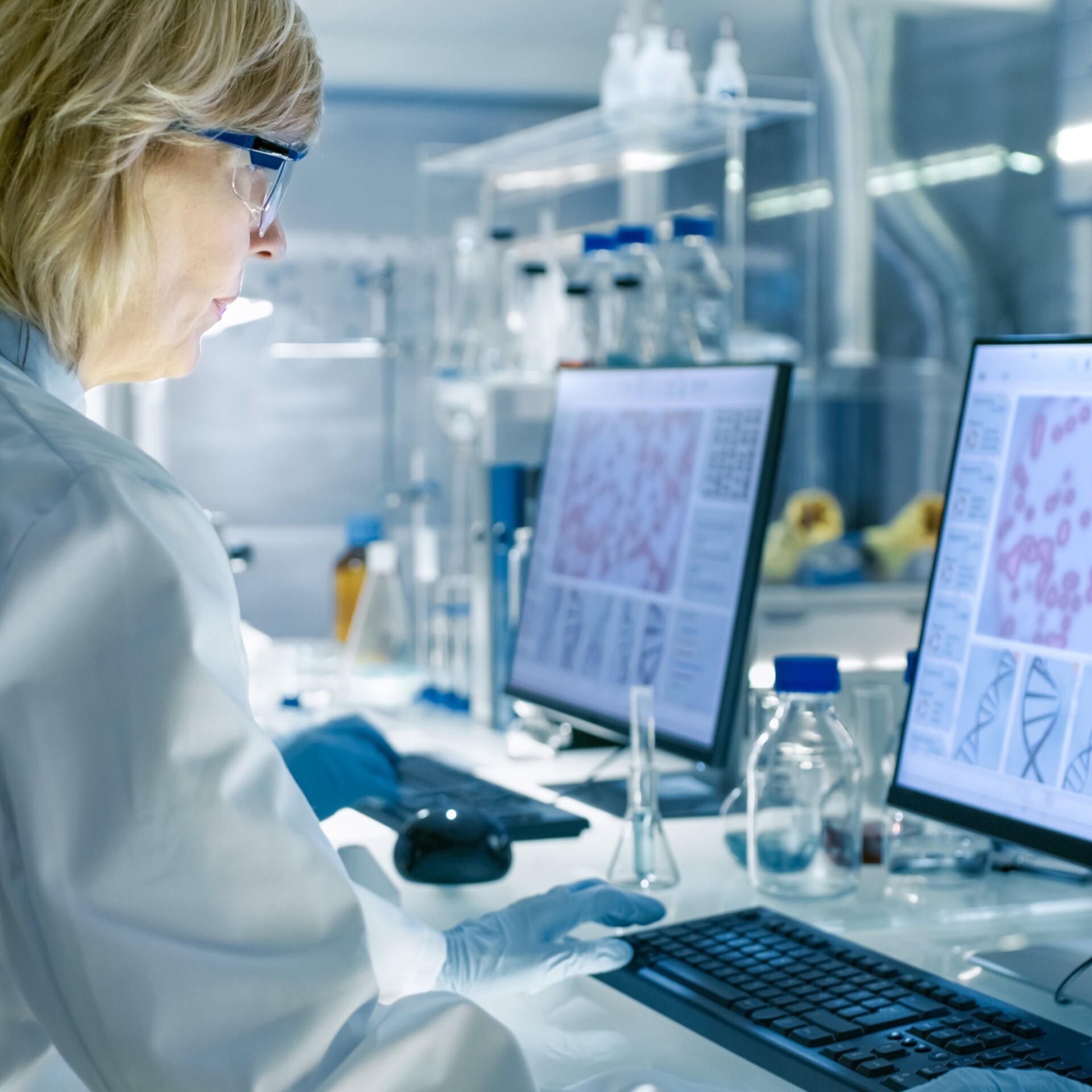Read next
Online Seminar
Safe Intelligence for Laboratories: a »prediction magic«
While many current CDS expert systems (Clinical Decision Support) in laboratories are being criticized due to difficulty in scaling, constant review from the medical perspective and limited data cases, artificial intelligence (AI) has become a highly plausible alternative. »Safe Intelligence for Laboratories«, a webinar hosted by Fraunhofer IKS, focused on the cases and challenges of AI in laboratories from the perspectives of both industry and patients.



© iStock/gorodenkoff
Anna Solovyova, Artificial Intelligence/Machine Learning Program Lead from SYNLAB, which specializes in medical diagnostic services and specialty testing in Europe, provided an insight into the application of AI in laboratories and compared it to the current systems. She emphasized that the quality of AI’s contribution to laboratories should not be underestimated: It provides valuable support in the most complicated cases and helps with both existing diagnosis pathways and enhancing new findings. Additionally, AI could be easily scaled compared to the current systems in laboratories.
While AI is a much more valuable alternative to current laboratory systems, Solovyova also mentioned the challenges that accompany the use of AI. In particular, how during data collection in a new geographical location numerous AI preparation processes need to be carried out an extra time. Throughout the entire process of data preparation and normalization, constant medical supervision and a close connection between the technical team and medical experts are essential. Furthermore, high costs, arduous validation and certification and preparation of data and data pipelines are also massive barriers on the path to AI application in laboratories.
SYNLAB already demonstrated how to cope with these challenges at a very early stage in development using a structural approach. During the ideation stage, which takes place before any experiments and machine learning, data quality assessment with medical experts must be conducted. Hiring a lawyer from the outset to deal with all legal guidelines and documents as a means to ensure the correct usage of sensitive and medical data is highly recommended when faced with the constant updates and numerous rules in GDPR and A1 Med Regulations.
Early diagnosis of complicated diseases
In addition to lab doctors, general practitioners, clinicians and lab service providers who benefit from the AI application, patients are also key stakeholders. Dr. Narges Ahmidi, Department Head of Reasoned AI Decisions from Fraunhofer Institute for Cognitive Systems IKS, explained the current and potential applications of reliable AI from a patient-focused perspective. »AI could be seen as prediction magic«, said Ahmidi. Different from the long observation process used by doctors for diagnosis, AI observes the data between »healthy« and »asymptomatic« to achieve early diagnosis of complicated diseases, thus appropriate treatment can take place immediately.
On top of illness prevention, AI could contribute to the medical industry by providing access to medical knowledge, which normally takes years to learn through training, to clinicians of all levels. Clinicians could also gain access to a vast and rich source of medical data, observe and investigate new hypotheses for correlation and causal relations, thus improving patients’ lives. A great example given by Ahmidi of a routine application of AI in laboratories is heart surgery. Doctors enter a patient’s data into the database, observe the national data and determine whether the surgery is considered high risk for the patient. In the future, it is expected that AI could even be able to contribute valuably to cancer treatment response, the recovery of COVID-19 patients, the screening of rare diseases and more.
Ahmidi emphasized that although AI is a prediction magic, it must be combined with causal inference methodologies — which in this case is equivalent to medical experts — in order to contribute to the decision support level. Therefore, convincing doctors that AI is a useful assistance and upgrade to laboratory test quality rather than a substitute for them is key to the daily use of AI in laboratories. SYNLABS expert Solovyova believes that daily usage could be realized in less than five years.


